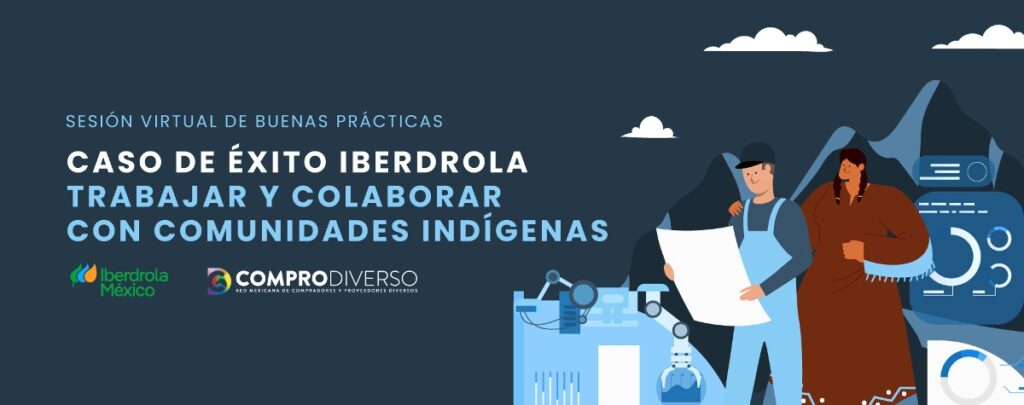August 9 marks the International Day of Indigenous Peoples, and in the labor context this date is an opportunity to reflect on and reinforce the institutional commitment of each company to inclusion, equity and respect for the human rights of this sector of the population.
The International Day of Indigenous Peoples was established by the General Assembly of the United Nations Organization at a meeting held on December 23, 1994; on that occasion it was agreed that it would be commemorated on August 9 of each year..
Mexico is a multicultural country. In our context, this day allows us to distinguish the legacy and contributions that Indigenous Peoples have made to the national culture.
Recognition of indigenous peoples also occurs in the workplace. This not only responds to a commitment to ethics and human rights, but also to strengthens the principles of sustainability, innovation, and social justice within the organization..

Want to learn more? Register here and attend our virtual session on best practices the thursday, august 14where we will learn about the success story of Iberdrola, an affiliated company that collaborates with indigenous communities.
How is the panorama of people belonging to indigenous peoples in the labor context in Mexico and Latin America?
According to data from Mexico's National Population Council (Conapo), 19.4% of the population aged three years and older self-identified as belonging to an indigenous people in 2020.. This was equivalent to more than 23 million inhabitants.
Turning to labor, based on data provided by the International Labor Organization (ILO) in 2022, 85% of people belonging to indigenous peoples in Latin America and the Caribbean are employed in the informal economy..
This makes are excluded from certain rights that they could have access to in the formal sector, such as social security, vacations and Christmas bonuses.
On the other hand, taking more information from the ILO, Latin America is the region with the largest gap in labor income. This means that the salaries of people belonging to indigenous peoples only represent 33% of what the general population earns on average..
In this regard, the National Human Rights Commission (CNDH) states in its document The human right to work of indigenous people that inequality is perpetuated in Mexico.:
"The human right to work of the members of indigenous peoples and communities shows great lags that have not yet been properly addressed, which are fundamental for the protection of this sector of Mexicans that suffers systematic discrimination and enjoys lower levels of social welfare than the national average."
The recognition of indigenous peoples in the workplace us allows:
- understand the diversity as an institutional strength that makes us more pluralistic;
- innovate in internal processes through the knowledge that Indigenous Peoples have in various areas;
- meeting the sustainable development goals of the 2030 Agendaespecially those pursuing decent work and the reduction of inequalities.
What does my organization need to do to make a difference for indigenous peoples in the workplace?
- Have internal anti-discrimination policies in relation to indigenous peoples.
- Respect cultural and linguistic diversity to promote true inclusion. Examples include implement training and evaluations in native languages if there are collaborators from indigenous peoples.
- Promoting a culture of equity from the hiring process to the day-to-day work performed by employees.
- Have a pay equity.
- Implement cross-cultural training and awareness programs. related to this topic.

Want to learn more? Register here and attend our virtual session on best practices the thursday, august 14where we will learn about the success story of Iberdrola, an affiliated company that collaborates with indigenous communities.
Did you know the impact of indigenous peoples in the labor context in Mexico and Latin America?
With information from CNDH, Conapo, ILO y La Jornada
Research and editing by Jose Manuel Rios, Rodrigo Hernandez Vera and Mildred Perez de la Torre



